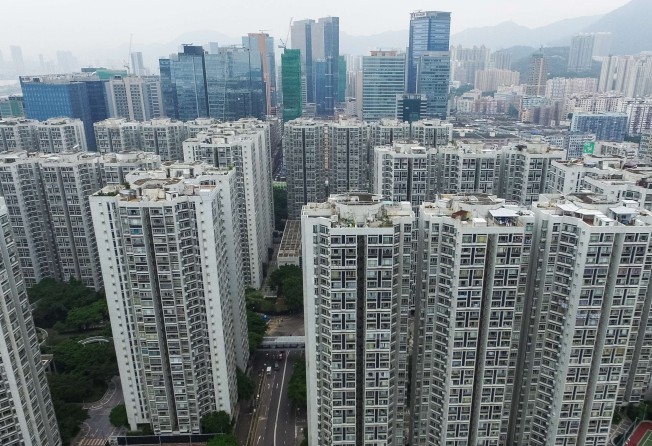Hong Kong property prices likely to soften next year, says Colliers
Stamp duty increase may see more tiny flats coming on to the market amid a temporary cooling in prices

Hong Kong residential property prices will face downward pressure in the near-term following the government’s 15 per cent stamp duty increase for non-first time buyers, prompting developers to build more tiny flats, industry sources said.
The city’s real estate market is “on the rise again” thanks to higher-than-expected economic growth and a negative real interest rate environment, said global property consultancy Colliers International. However, real estate prices in Hong Kong are still the highest in the world, it said.
The stamp duty increase on November 5, the second such hike in three years, could cool housing prices by 5 to 10 per cent in the next twelve months, Colliers said.
However, the downward correction of prices will be small and temporary, according to Nicole Wong, regional head of property research at CLSA.
“Most of the buyers who incur the double stamp duty are actually upgraders,” Wong told the Post over the phone. “If people cannot upgrade, they would not sell out of their first unit, and there won’t be any supply in the market.”
Alva To, senior managing director of DTZ C&W in Hong Kong, agreed that the measures will not lead to a significant market adjustment, as it is mainly aimed at the secondary market.
“The impact of the measures on the primary market will likely be mild because developers can offset the extra stamp duty costs with various subsidies,” To said.
Developers may even offset the cost of stamp duty rebates by increasing list prices by 10 to 15 per cent, according to Henry Mok, regional director of capital markets at JLL.
Monthly transaction volumes for properties is also expected to fall from the 8,560 total transactions in October to below 4,000, with secondary market transactions between 1,500 to 1,800, according to Colliers.
Last week, four transactions for seven apartments worth HK$55.4 million were cancelled, with buyers forfeiting their deposits.
But while there may be a “freeze in transaction volumes” as buyers hold off, there will still be “robust demand” from first-time buyers who are not subject to the stamp duty and mainland buyers, according to JLL.
“Mainland buyers should continue to seek out residential properties in Hong Kong, given the continued appreciation of the Hong Kong dollar against the yuan,” said a recent JLL statement.
Other factors in the market could be the uncertainty of Donald Trump’s election and the likely rise in US interest rates, Wong said.
In light of the stamp duty change, developers are also keen to introduce more small units in the price range of HK$3 million to HK$5 million, according to Vincent Cheung, executive director of Asia valuation and advisory services at Colliers.
“Most of the developers intend to build small units,” Cheung told he Post. “The reason is, that is the price range that the people can afford to buy.”
Since residential buyers are increasingly purchasing for their own use rather than for investment purposes, developers are focusing on more affordable units that can be sold within 12 months of construction, Cheung said.
“[Developers] think because [of] the uncertainties, it is probably going to be easier to sell smaller units,” Wong added.
The current average size for planned new housing developments is 620 square feet, but units in Hong Kong can be as small as 163 square feet.
Emperor International Holdings recently indicated plans to launch units even smaller units at 61.4 square feet, around half the size of an average parking space.
This trend is partly spurred by millennials, who are more inclined toward smaller flats located closer to MTR stations, creating a larger leasing market for tiny units, Cheung said.
“All the millennials wish that they have [their] own space,” he said. “It doesn’t meant that it is a big space, 80 square feet, 100 square feet, that is fine.”
Investors who moved away from residential properties with higher prices now favour other real estate sectors, according to Colliers.
Capital value for office and industrial assets in Hong Kong is projected to rise by 10 per cent and 3 per cent respectively next year.